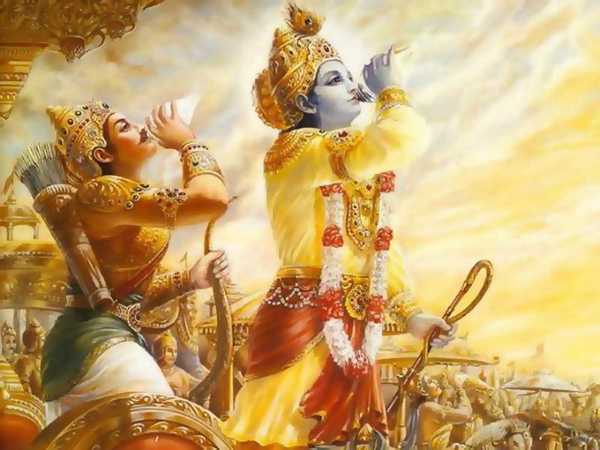Chapter 70

“Vrihadaswa said, ‘After a long time had passed away, a Brahmana namedParnada returned to the city (of the Vidarbhas), and said unto thedaughter of Bhima, ‘O Damayanti, seeking Nala, the king of Nishadhas, Icame to the city of Ayodhya, and appeared before the son of Bhangasura.And, O best of women, I repeated those words of thine in the presence ofthe blessed Rituparna. But hearing them neither that ruler of men, norhis courtiers, answered anything, although I uttered them repeatedly.Then, after I had been dismissed by the monarch, I was accosted by aperson in the service of Rituparna, named Vahuka. And Vahuka is thecharioteer of that king, of unsightly appearance and possessed of shortarms. And he is skillful in driving with speed, and well acquainted withthe culinary art. And sighing frequently, and weeping again and again, heinquired about my welfare and afterwards said these words, ‘Chaste women,although fallen into distress, yet protect themselves and thus certainlysecure heaven. Although they may be deserted by their lords, they do notyet become angry on that account, for women that are chaste lead theirlives, encased in the armour of virtuous behaviour. It behoveth her notto be angry, since he that deserted her was overwhelmed with calamity,and deprived of every bliss. A beauteous and virtuous woman should not beangry with one that was deprived by birds of his garment while strivingto procure sustenance and who is being consumed with grief. Whethertreated well or ill, such a wife should never indulge in ire, beholdingher husband in that plight, despoiled of kingdom and destitute ofprosperity, oppressed with hunger and overwhelmed with calamity.’ Hearingthese words of his, I have speedily come here. Thou hast now heard all.Do what thou thinkest proper, and inform the king of it.’
“O king, having heard these words of Parnada, Damayanti with tearful eyescame to her mother, and spake unto her in private, ‘O mother, king Bhimashould not, by any means, be made acquainted with my purpose. In thypresence will I employ that best of Brahmanas, Sudeva! If thou desirestmy welfare, act in such a way that king Bhima may not know my purpose.Let Sudeva without delay go hence to the city of Ayodhya, for the purposeof bringing Nala, O mother, having performed the same auspicious rites byvirtue of which he had speedily brought me into the midst of friends.’With these words, after Parnada had recovered from fatigue, the princessof Vidarbha worshipped him with profuse wealth and also said, ‘When Nalawill come here, O Brahmana, I will bestow on thee wealth in abundanceagain. Thou hast done me the immense service which none else, indeed, cando me, for, (owing to that service of thine), O thou best of theregenerate ones, I shall speedily regain my (lost) lord.’ And thusaddressed by Damayanti, that high-minded Brahmana comforted her, utteringbenedictory words of auspicious import, and then went home, regarding hismission to have been successful. And after he had gone away, Damayantioppressed with grief and distress, calling Sudeva, addressed him, OYudhishthira, in the presence of her mother, saying, ‘O Sudeva, go thouto the city of Ayodhya, straight as a bird, and tell king Rituparnaliving there, these words: ‘Bhima’s daughter, Damayanti will hold anotherSwayamvara. All the kings and princes are going thither. Calculating thetime, I find that the ceremony will take place tomorrow. O represser offoes, if it is possible for thee, go thither without delay. Tomorrow,after the sun hath risen, she will choose a second husband, as she dothnot know whether the heroic Nala liveth or not. And addressed by her, Omonarch thus, Sudeva set out. And he said unto Rituparna, all that he hadbeen directed to say.'”




